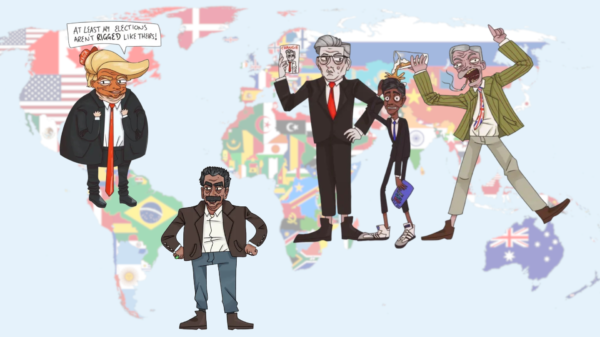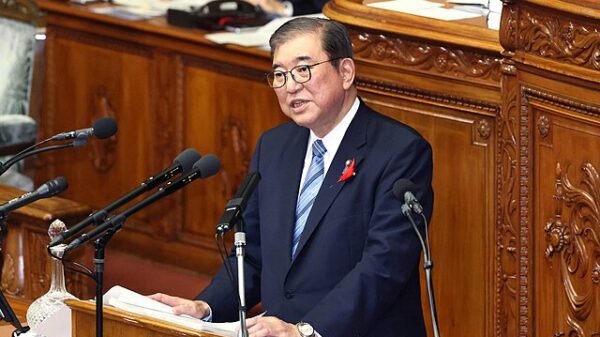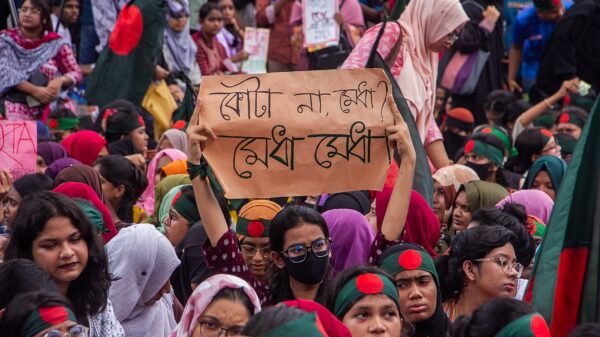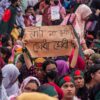Staff Writer Abhinav Poludasu explains the ongoing political crisis in Pakistan which has sprouted from former Prime Minister Imran Khan’s arrest.
Former Pakistani Prime Minister Imran Khan’s recent arrest on corruption charges has sparked widespread protests and led to the deployment of the army on the streets of Pakistan. The ensuing violence caused due to Khan’s arrest has resulted in a significant number of detentions and several fatalities. Khan was released on 12 May 2023 after the Supreme Court declared his arrest illegal and has since intensified his criticism of Pakistan’s influential military establishment, accusing them of orchestrating his arrest. In response, the military-allied government has vowed to re-arrest Khan at the earliest opportunity, illustrating the political volatility in Pakistan, which is unlikely to subside anytime soon.
Background
Following the 2018 General Elections, Imran Khan and his party, the Pakistan Tehreek-e-Insaf (PTI) emerged victorious. However, the election results did not secure an absolute majority for the ex-cricketer, which meant that he needed to collaborate with opposition parties, and ended up becoming the leader of a coalition government.
Despite building this coalition, Khan encountered challenges in building a consensus within the government, which led to internal conflicts. Consequently, the opposition parties, representing a broad spectrum of ideologies, formed a new coalition called the Pakistan Democratic Movement (PDM) which did not contain Khan’s PTI. This exacerbated the political tension in Parliament. Moreover, Pakistan’s foreign policy choices, which displayed hostility towards the United States through anti-American rhetoric, compounded the political crisis, culminating in the PDM’s successful ousting of Khan through a no-confidence vote in 2022.
Since his removal from office, Khan has spearheaded a campaign against the current government, vehemently criticizing their economic policies and their relationship with his former allies in Pakistan’s influential military. Khan has even alleged that the army and the current Prime Minister, Shehbaz Sharif, were complicit in an assassination attempt he narrowly survived in November. The Government has vigorously denied these allegations. Conversely, they have levelled a series of corruption charges against Khan. Following his expulsion from office, the new regime claimed that Khan had engaged in a quid pro quo arrangement with a prominent property tycoon during his time in government, resulting in a loss of over $239 million (£190 million) from the national exchequer. Khan has consistently refuted these allegations, which he alleges form part of a mounting effort by the Government and the military to prevent him from seeking office again.
What is Happening Now?
Khan was arrested on 9 May 2023 during a bail hearing for a separate corruption case. Nearly 100 paramilitary officers apprehended him, which his party, the PTI, denounced as an “illegal abduction.” Subsequently, tens of thousands of Khan’s loyalists took to the streets in violent protest. Khan remained in custody until May 12, when the Supreme Court declared his arrest on court premises as “illegal and invalid“, at which point he was released on bail. Upon returning to Lahore, Khan publicly accused Pakistan’s powerful military establishment of orchestrating his arrest.
What distinguishes this crisis from others that have emerged recently in Pakistan is Khan’s unprecedented level of support from the general public. The loyalty of his followers, combined with the Pakistani outrage against the influential military, has created a highly volatile atmosphere throughout the country. The unrest has extended to major cities, where defiant crowds have engaged in audacious acts such as trespassing on military properties and setting the homes of army personnel ablaze. These actions directly challenge the traditionally untouchable force that has held a dominant position in Pakistan’s power structure. Adding to the turmoil is Pakistan’s dire economic situation, which has exacerbated the plight of the people, with inflation already reaching an all-time high.
Conversely, the Government has accused Khan and his supporters of crossing a red line by systematically attacking military property and installations while raising anti-army slogans. Authorities have detained over 650 individuals in the province of Khyber Pakhtunkhwa, with nearly 1,650 arrests made in Punjab province, the country’s most populous region. The Government has also ordered the nationwide closure of private schools and several countries, including the United States and the United Kingdom, have issued travel advisories against the nation. In an attempt to restore order, the Government has blocked mobile internet services, resulting in disruptions to platforms such as Twitter, Facebook, YouTube and various popular apps and digital payment systems.
What next for Pakistan?
The situation in Pakistan remains tense, with no clear resolution to the crisis in sight. Some observers have likened this unrest against the military to the tumultuous events of 1971 when Bangladesh, then named East Pakistan, gained independence after a bloody war of liberation. Currently, many fear for the future of Pakistan, with its already fragile democratic system hanging in the balance. Khan demands the immediate scheduling of provincial and general elections and has threatened mass protests if the ruling Government fails to comply. Concurrently, the country’s economy remains in shambles and a protracted political crisis threatens to further fracture the nation.
Given the lack of formidable political challengers to Khan’s PTI in elections and the overwhelming popularity of Imran Khan among the citizens, there is a substantial likelihood that the military establishment may impose a prolonged state of emergency, keeping the former Prime Minister behind bars. The future of Pakistan continues to remain uncertain and will continue to remain so unless an agreement is reached between Khan and the military. Is it likely that such an event will unfold? We’ll have to wait and watch.















